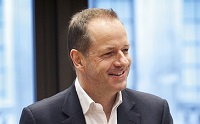Several years ago, GlaxoSmithKline ($GSK) made a special commitment to an antibiotics plant in Singapore. It slated $50 million to set up a facility to do continuous processing, a radically different manufacturing approach that has a much smaller footprint, and so, much lower operating costs and less environmental impact, than traditional batch processing. The drugmaker says it is ready to embark on a £38 million expansion there.
This additional $60 million will be used to build a downstream isolation facility at the site, one of the world's largest amoxicillin API facilities, the company said in a statement. The expansion will allow GSK to increase production by about 50%. At the same time, the shift to enzymatic technology is reducing company's carbon footprint by 25% and uses less organic solvents, meaning it will produce about 80% less organic waste than batch processing, the company said.
The expansion is also expected to add about 25% to the employment at the plant, where it currently employs about 110, according to AsiaOne Business.
 |
| Andrew Witty |
GSK CEO Andrew Witty told shareholders in 2013 that the Singapore facility would be a "significant technology leap for the company." He said at the time that between a third and half of the company's current portfolio of drugs could be made using continuous processing, leading to both lower costs and a milder impact on the environment. GSK upped its commitment last fall, when it decided to spend £19 million ($30 million) to implement the new process at another plant in Singapore to make APIs for its respiratory drugs.That facility is slated to go online in the first quarter of 2016.
There are big hopes for continuous processing, which, instead of using batches and chemical reactions, pushes raw ingredients through a series of heaters, spinners, extractors and other equipment to achieve the end result. The process has to be factored into early development plans, though, so the shift to the less expensive process has been small so far. But some are acting on its potential.
Vertex Pharmaceuticals ($VRTX) is building a $30 million, 4,000-square-foot continuous manufacturing facility in Boston for a new cystic fibrosis drug which has been recommended by a committee for approval by the FDA. Officials at Johnson & Johnson ($JNJ), which has been working with a continuous manufacturing line at a Puerto Rico plant, have said the company wants to produce 70% of its high-volume products through continuous manufacturing within 8 years.
- here's the release
- get more from AsiaOne Business